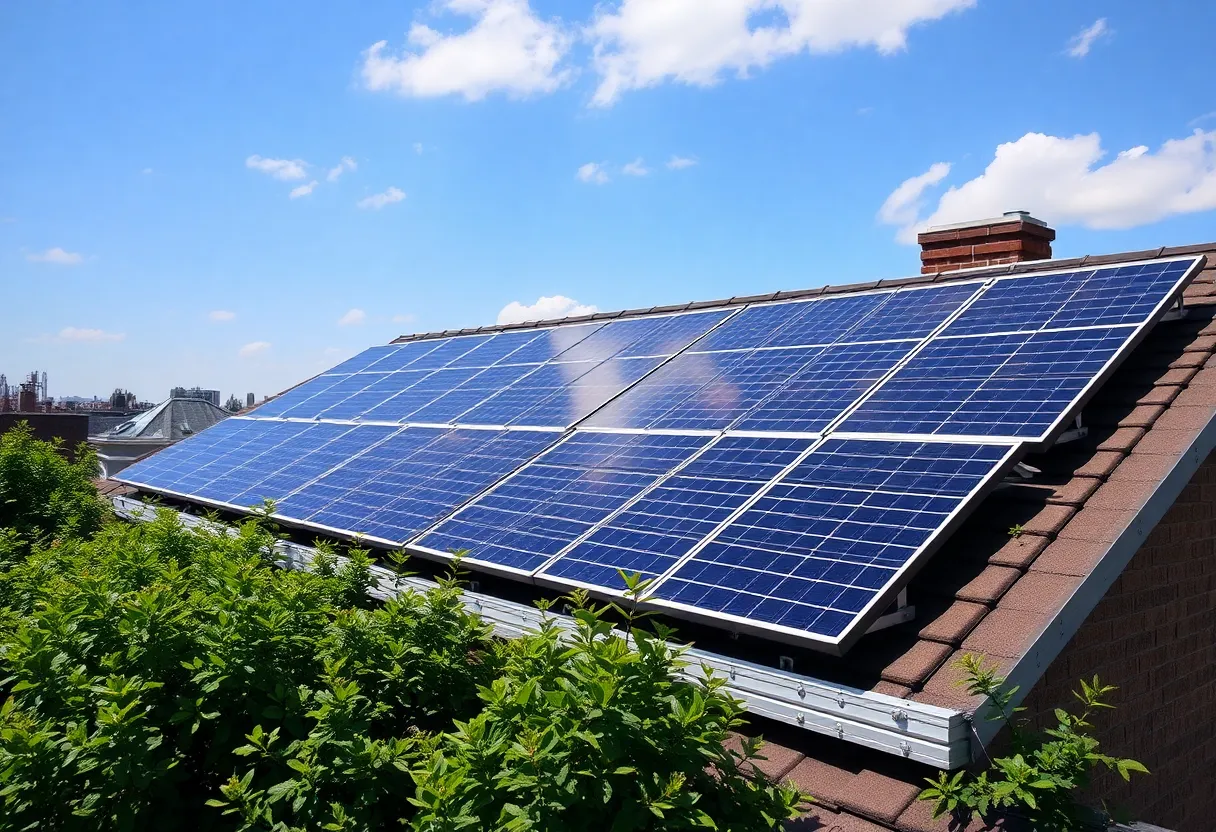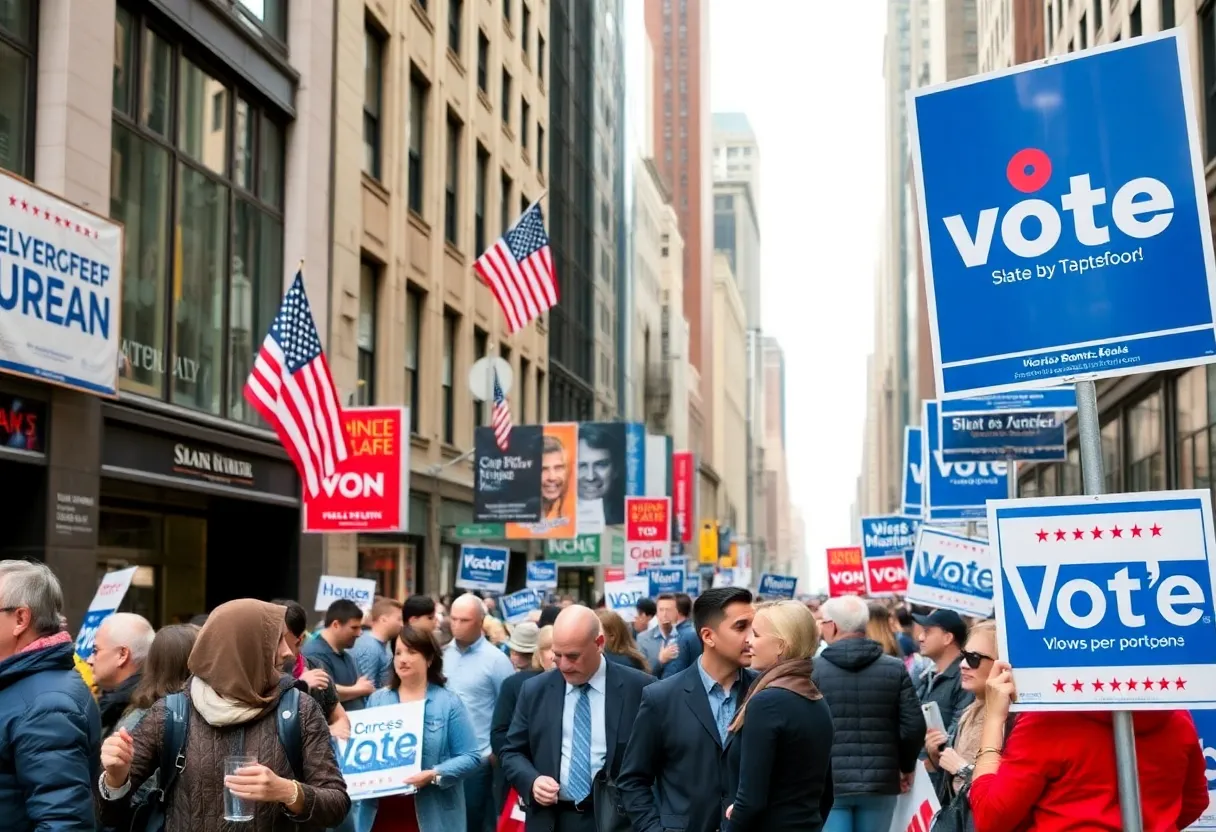News Summary
New York’s green energy sector is bracing for potential setbacks following the U.S. Senate’s approval of a bill phasing out crucial tax credits. The Inflation Reduction Act’s incentives have driven eco-friendly home upgrades, but these tax credits are now threatened, leaving homeowners and businesses concerned about future investments. Industry leaders warn that the loss of these incentives could endanger thousands of jobs and undermine New York’s clean energy ambitions. As legislative debates continue, stakeholders are anxious about the impacts on energy pricing and job availability in the renewable sector.
New York is facing uncertainty in its green energy sector following the U.S. Senate’s approval of a tax and spending bill that involves phasing out essential tax credits from the Inflation Reduction Act, which has supported numerous clean energy projects across the state. The House of Representatives is expected to pass its own version of the bill, and President Trump is anticipated to sign it into law by July 4.
The Inflation Reduction Act significantly bolstered eco-friendly home upgrades by providing substantial tax credits, offering a 30% reduction in installation costs for systems such as solar panels and geothermal heating. These credits played a vital role in encouraging homeowners to invest in renewable energy solutions.
In Tarrytown, NY, residents Amy Albenda Hill and her husband Adam benefited from these federal tax credits to install green energy systems in their home. Their experience underscores the importance of these incentives in promoting clean energy initiatives among homeowners.
The recent legislative move has drawn criticism from environmental advocates like the New York League of Conservation Voters. They have labeled the Senate bill a “reckless reconciliation bill”, arguing that it could jeopardize both New York’s economy and its future in clean energy development. The fear is palpable among green energy businesses, which are already feeling the strain as potential customers hold off on investing in solar or geothermal projects due to the threatened tax credits.
Rob Feuer, the owner of Geothermal Works, reported a drastic downturn in business, revealing a drop from 30 ongoing jobs to just three as uncertainty grows around the tax incentives. Feuer described the situation as akin to having the faucet turned off. Similarly, Oliver Koehler, owner of SunTegra Solar, expressed deep concern that his business might not survive the fallout, predicting severe challenges for the residential solar market if project costs rise significantly.
Noah Ginsburg, executive director of the New York Solar Energy Industries Association, warned that if the tax credits were to expire, New York could lose half of its 16,000 solar jobs, affecting a diverse array of roles within the industry. The clean energy tax credits have been instrumental in the development of renewable projects such as solar farms and battery storage facilities throughout the state.
For instance, companies like NineDot Energy have successfully utilized tax credits to build battery storage farms designed to hold electricity generated from solar energy to meet peak demand periods. However, the impending phase-out of these credits places over $780 million in new investments and approximately 14,000 construction jobs at risk within the state’s renewable energy sector.
Current legislative debates have positioned New York Republicans in a challenging scenario, given that many jobs resulting from clean energy projects are located in predominantly Republican districts. Some GOP congressmen are working to salvage specific tax credits for projects already underway, while simultaneously advocating for new project credits.
While New York maintains its separate incentives for renewable energy, these state-level programs do not match the extensive scope of the federal tax credits that are now under threat. The New York State Energy Research and Development Authority (NYSERDA) has indicated its inability to fulfill the funding obligations that the federal government is retreating from.
Industry leaders are suggesting potential relief measures, such as reducing bureaucratic delays associated with project permits and reversing cuts to state funding, to support the local solar market. However, experts are expressing concerns about the long-term viability of green energy projects in light of current federal legislative developments, compounded by challenges stemming from tariffs on imported solar components.
The repercussions of these legislative actions are poised to have significant ramifications for clean energy job availability, energy pricing, and New York’s overall approach to climate action in the years to come. Stakeholders across the energy landscape are anxiously awaiting further developments as the deadline approaches.
Deeper Dive: News & Info About This Topic
- NY Focus
- Wikipedia: Clean Energy
- Politico
- Google Search: Clean Energy Tax Credits New York
- New York Times
- Google Scholar: Clean Energy in New York
- Dezeen
- Encyclopedia Britannica: Renewable Energy
- News10
- Google News: Green Energy Projects New York
- WGRZ








